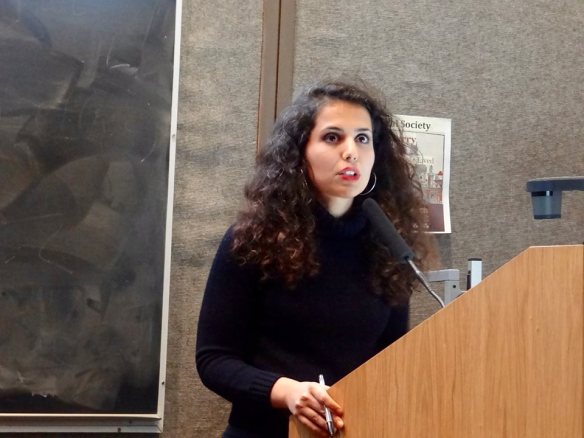 On September 8th last, Academics for Palestine and our colleagues in the Ireland-Palestine Solidarity Campaign were honoured to host the amazing Palestinian academic, author and activist Ghada Karmi in Dublin. Taking time out of a conference in Trinity College Dublin, Ghada launched her latest book ‘Return: A Palestinian Memoir’ in Wynn’s Hotel to a large and rapt audience. Gahda was in conversation with well-known academic and journalist Harry Browne, who is also a member of AFP, and took questions from the audience.
On September 8th last, Academics for Palestine and our colleagues in the Ireland-Palestine Solidarity Campaign were honoured to host the amazing Palestinian academic, author and activist Ghada Karmi in Dublin. Taking time out of a conference in Trinity College Dublin, Ghada launched her latest book ‘Return: A Palestinian Memoir’ in Wynn’s Hotel to a large and rapt audience. Gahda was in conversation with well-known academic and journalist Harry Browne, who is also a member of AFP, and took questions from the audience.
![]() The IPSC has kindly made a recording of the evening available for those who couldn’t make it along, via their wonderful Palestine Podcast series. Please click here to listen to the recording.
The IPSC has kindly made a recording of the evening available for those who couldn’t make it along, via their wonderful Palestine Podcast series. Please click here to listen to the recording.

